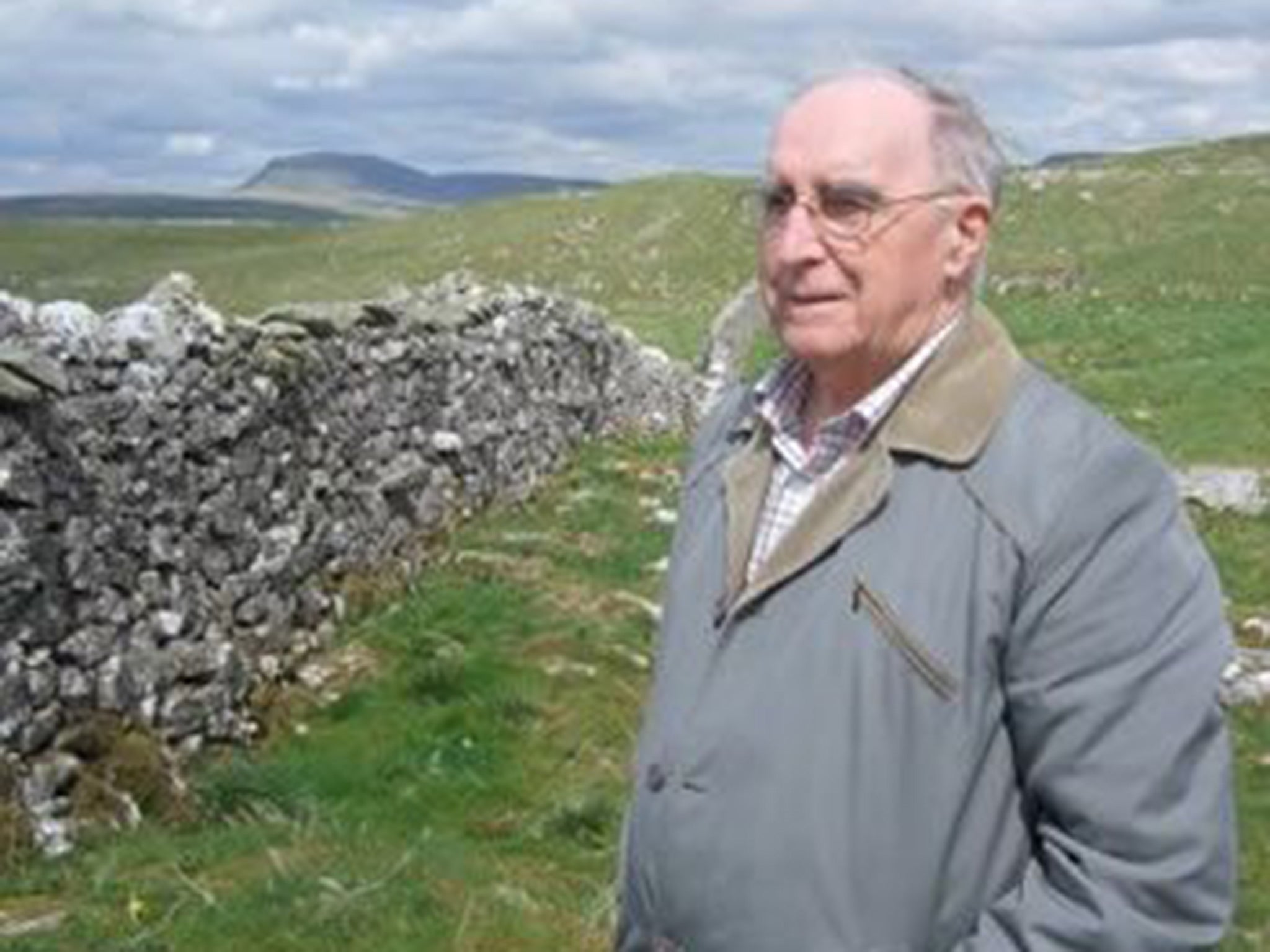Bill Mitchell: Journalist and author who wrote extensively on the Yorkshire Dales and its most celebrated characters
He was constantly in demand for talks, lectures, interviews and television appearances

In a literary career spanning more than six decades, Bill Mitchell proved a noted chronicler of life in the Yorkshire Dales. As well as producing more than 200 books, for 20 years he was the editor of the Dalesman magazine. He was one of the founding fathers of outdoor writing, his deceptively simple style effortlessly capturing all aspects of life among the dry stone walls.
The son of a Skipton weaver, educated at Brougham Street School and Keighley College of Commerce, Mitchell began his journalistic career in 1943 as a trainee reporter on the Craven Herald and West Yorkshire Pioneer, during which time he also did two years’ national service in the Royal Navy.
While many of his fellow trainees moved on to Fleet Street, Mitchell merely moved a few miles down the road to join the Dalesman, based in the nearby village of Clapham. It was founded in 1939 as The Yorkshire Dalesman by the Leeds journalist Harry J Scott, and prepared in the front parlour of his home, production later moving into a converted coach house behind Clapham Village Hall. Cumbria magazine was added in 1952.
Mitchell’s first assignment was to interview a character known as “Owd Mick the Bull Walloper”, or drover, who, having suffered some kind of wartime injury to his throat, could reportedly down 12 pints of bitter to 12 strokes of the clock as it struck midday. Over the years he won a limitless supply of free ale from visitors keen to test the theory. Mitchell, a lifelong Methodist, quickly ran out of expenses.
He emerged as a man of wry but gentle observation to whom one warmed irresistibly. As individual in the flesh as he was in print, Mitchell always revelled in the time spent chewing over ideas with people he had come to know and respect. For him, this sharing of experiences was unquestionably what the job of a writer was all about. Particularly sensitive to mood, he was quick to appreciate difficulties and even quicker to give help and support.
Nothing united the magazine’s readership more than the 1974 local government reorganisation which brought about the demise of the old Ridings of Yorkshire. With local pride shattered, letters bemoaning the change never ceased to arrive. His campaigning played a more successful role in helping to save the Settle-Carlisle Railway when it was threatened with closure in the 1980s.
Although effectively running the magazines for many years, Mitchell eventually became official editor in 1968, and over the next 20 years both the Dalesman and Cumbria prospered as never before. Alongside the wit and wisdom of Old Amos, near neighbour Alan Bennett wrote occasionally for him. By the time Mitchell retired in 1988, the Dalesman, with monthly sales of 60,000, had become the biggest-selling regional magazine in the country.
That year, following a visit to St Kilda, 50 miles off the Scottish mainland, he completed a number of books. One of them, about the intrepid islander Finlay MacQueen, was translated for the Japanese market. Mitchell used his popular output of books on the Settle-Carlisle Railway to subsidise volumes with less commercial appeal, and in 1988 he founded his own publishing imprint, Castleberg Publications.
Soon appearing were studies of Arthur Ransome, William Wordsworth, the Lancashire Witches, the Brontës, Alfred Wainwright, Alf Wight (aka James Herriot), Hannah Hauxwell and Kit Calvert – the old Dales character from Hawes, and the saviour of Wensleydale cheese, who once rewrote the Bible in Yorkshire dialect. Very different was the delightful Gossip from Giggleswick, published in 1988. Its final chapter remains a fitting tribute to Mitchell’s great friend and the village’s very own megastar, Russell Harty.
Newly discovered at the time were a number of unpublished music manuscripts by Sir Edward Elgar, once a regular visitor to the locality. The composer’s lasting friendship with the cello-playing Dales doctor Charles Buck became the subject of two books, Edward Elgar in the Yorkshire Dales (1987) and Mr Elgar and Dr Buck: A Musical Friendship (1991). From these, Mitchell developed The Elgar Way, a circular walk of some 13 miles that allowed enthusiasts to follow in the composer’s footsteps.
He was constantly in demand for talks, lectures, interviews and television appearances. His extensive collection of audio tapes, videos, slides and photographs are now housed at the University of Bradford and the University of Leeds, as well as the Museum of North Craven Life. A lifelong fell walker, in the company of a group of like-minded friends he formed The Geriatric Blunderers’ Walking Club. Their motto: We’ve been lost on it!
The recipient of an honorary doctorate from the University of Bradford, in 2007 Mitchell received the Golden Eagle Award from the Outdoor Writers and Photographers Guild. Two years later he was named by the Yorkshire Dales National Park as its greatest living cultural icon. A final volume, Lake District Folk, completed just days before his death, now forms a most poignant and fitting monument to his work and achievements.
KENNETH SHENTON
William Reginald Mitchell, journalist, writer and publisher: born Skipton, Yorkshire 15 January 1928; M.B.E. 1996; married 1952 Freda Bancroft (died 2007; one son, one daughter); died Skipton 7 October 2015.
Join our commenting forum
Join thought-provoking conversations, follow other Independent readers and see their replies
0Comments